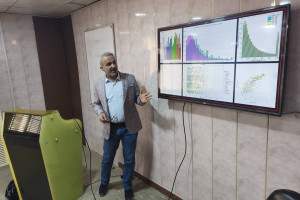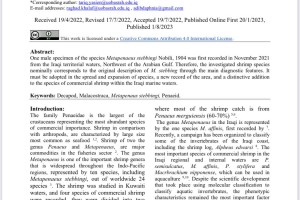
The Marine Science Center organized a symposium entitled “Types of Shrimp and Their Economic Importance.”
The symposium included several lectures given by Prof. Dr. Ibtisam Mahdi Abdul Sahib, Assistant Professor Dr. Intisar Muhammad Ali, and Assistant Professor Dr. Nada Mufid Abdul Latif
On an overview of shrimp, the factors suitable for its farming, and its locations in the world and Iraq in salt and fresh water.
The lecture touched on the great economic importance of shrimp due to its contribution to the fishing industry, aquaculture, trade, and culinary industries worldwide. It provides livelihoods for millions of people, generates significant revenues, and supports national economies, especially in developing countries. The growth and sustainability of the industry depends on addressing challenges such as environmental impact, disease management, and market access. Continuous innovation and commitment to sustainable practices will certainly ensure that shrimp remains a valuable and vital component of the global economy.
By understanding the economic importance of shrimp, we can appreciate its role in supporting livelihoods, promoting economic development, and contributing to global food security. Whether through wild fisheries or aquaculture, shrimp will remain a major player in the seafood industry, driving economic growth and providing nutritious food for millions of people around the world.










.jpg)

.png)